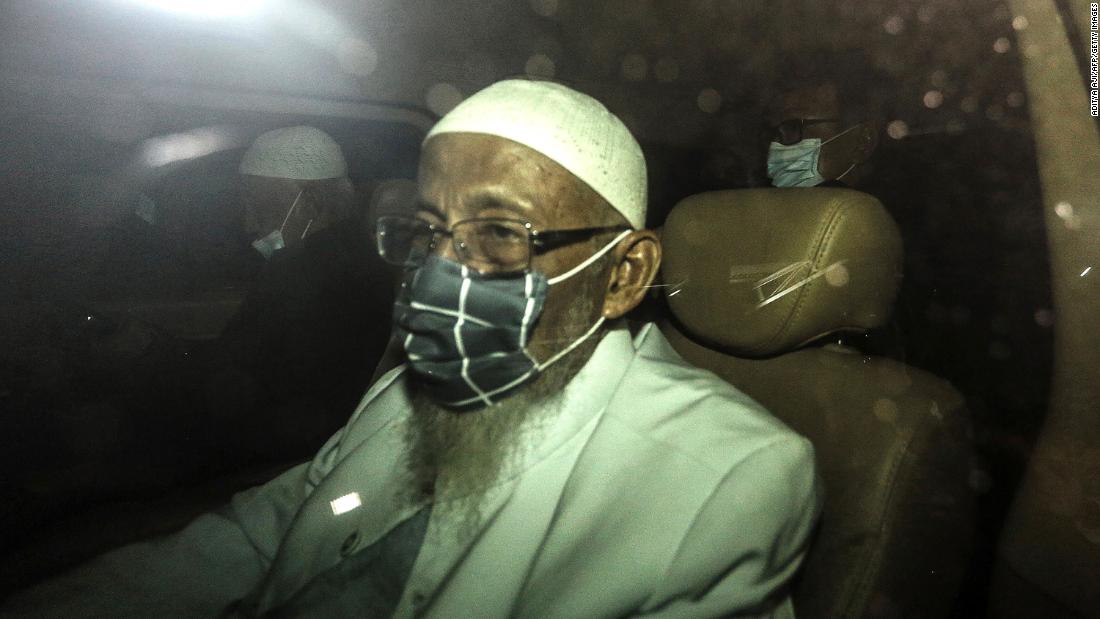
Bashir was picked up by his family and taken to his home in central Java, a spokeswoman for the Directorate General of Corrections at the Ministry of Law and Human Rights said.
The photos showed him wearing a white robe, a white hat and a face mask when he left the prison in Bogor, south of Jakarta.
“Abu Bakar Bashir was released from Gunung Sindur prison at 5.30 in the morning,” spokeswoman Rika Aprianti told reporters, adding that he was healthy on departure.
Bashir, 82, considered the spiritual leader of Jemaah Islamiah (JI), a jihadist network linked to al-Qaeda, was imprisoned in 2011 for 15 years for his links to a militant training camp in Aceh province.
After receiving regular prison sentences, he served 10 years in prison.
Although Indonesian police and Western intelligence agencies say Bashir was linked to the Bali attacks that killed 202 people and a 2003 attack on the JW Marriott Hotel in Jakarta, he was never convicted of them and denied those links.
The Bali bombings killed 88 Australians, and the country’s foreign minister, Marise Payne, said this week that Indonesia must ensure that Bashir does not incite more violence.
Thiolina Marpaung, an Indonesian woman injured in the 2002 attacks, said she wanted authorities to continue to monitor Bashir.
“We don’t know what he was doing in prison,” she said by phone. “The government has yet to assert control over Indonesian terrorists who have been released from prison.”
Bashir pledged allegiance to the Islamic State in 2014 while in prison.
Eddy Hartono, from the Indonesian anti-terrorism agency, said Bashir would now pursue a radicalization program.
“We hope that Abu Bakar Bashir, after his release, can give peaceful and reassuring sermons,” he said in a statement.
Following the attacks in Bali and with the support of Australia and the United States, Indonesia set up an elite anti-terrorist unit that weakened the JI and led to the arrest or killing of dozens of suspected militants.
But other extremist groups have formed and carried out attacks in the world’s largest Muslim-majority country, and only last month police arrested 23 militants, including Zulkarnaen.
Abdul Rohim, Bashir’s son, told Reuters before his release that his father would return to the Al Mukmin Islamic boarding school near Solo, in the province of Central Java, which Bashir had set up in the 1970s and whose graduates in the past they were linked to militant networks and attacks.
“He has ended his term. This is easily over,” Rohim said, adding that he would lead Islamic preaching.
Security analysts say that although Bashir does not have as much power over JI or other groups, he could still influence other militants.
“Bashir is an ideologue, his words will be followed and exemplified,” said analyst Stanislaus Riyanta.